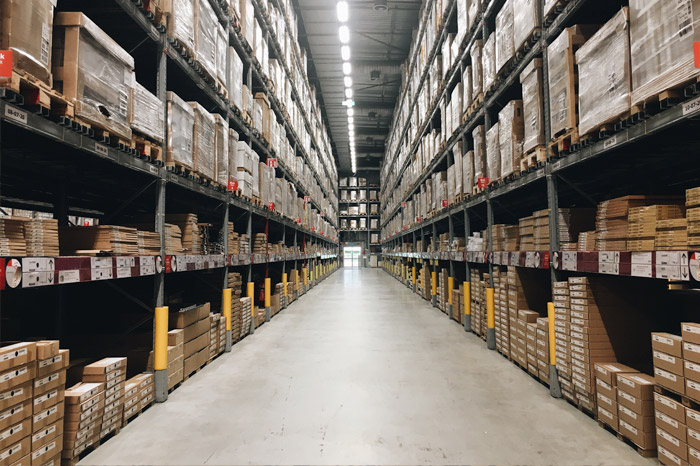WHAT ARE PARALLEL GOODS
Parallel goods are goods which are imported from another country without the consent of the intellectual property right owner and then sold in, for example, South Africa at a lower price and without the usual guarantee and/or after sale service that usually comes with it.
Internationally, there is an expansive demand and therefore a booming market for parallel goods. In comparison with international markets, South Africa is an untapped market with great potential. One of the reasons this market has not been explored is the lack of knowledge and regulation of parallel importation which results in a default investigation into counterfeit goods.
These investigations can span for months, all the while the importer being liable for storage and demurrage costs to the tune of thousands of Rands, and at times surpassing the value of the container.
LEGISLATION CITED ON THE NOTICES
Importers of parallel goods are more often than not on the receiving end of “Pre-Stop Verification Process” notices and “Detention of Container for Physical Exam”.
On closer inspection of these notices it can be noted that the sections cited as the reason for the detention are “Section 88(1)(A) & 1(B) Customs and Excise Act”, “Section 13(6) of the Police Act 68 of 1995”, and “Section 11(1)(A) of the Drug and Drug Trafficking Act 140 of 1992”. Depending on the goods being imported, these sections More than likely have nothing to do with your business.
Section 88(1)(a) and (b) of the Customs and Excise Act provides as follows:
(1)(a) An officer, magistrate or member of the police force may detain any ship, vehicle, plant, material or goods at any place for the purpose of establishing whether that ship, vehicle, plant, material or goods are liable for forfeiture under this Act.
(b) Such ship, vehicle, plant, material or goods may be so detained where they are found or shall be removed to and stored at a place of security determined by such officer, magistrate or member of the police force, at the cost, risk and expense of the owner, importer, exporter, manufacturer or the person in whose possession or on whose premises they are found, as the case may be.
Section 13(6) of the SAPS Act provides:
Any member may, where it is reasonably necessary for the purposes of control over the illegal movement of people or goods across the borders of the Republic, without a warrant search any person, premises, other place, vehicle, vessel or aircraft, or any receptacle of whatever nature, at any place in the Republic within 10 kilometres or any reasonable distance from any border between the Republic and any foreign state, or in the territorial waters of the Republic, or inside the Republic within 10 kilometres or any reasonable distance from such territorial waters, or at any airport as defined in section 1 of the Aviation Act, 1962 (Act No. 74 of 1962), or within any reasonable distance from such airport and seize anything found in the possession of such person or upon or at or in such premises, other place, vehicle, vessel, aircraft or receptacle and which may lawfully be seized.
Section 11(1)(a) of the Drugs and Drug Trafficking Act provides:
A police official may if he has reasonable grounds to suspect that an offence under this Act has been or is about to be committed by means or in respect of any scheduled substance, drug or property, at any time –
(i) enter or board and search any premises, vehicle, vessel or aircraft on or in which any such substance, drug or property is suspected to be found;
(ii) search any container or other thing in which any such substance, drug or property is suspected to be found
Legislation which is however relevant on the importation of parallel goods is section 34(2)(d) of the Trade Marks Act ,194 of 1993, which states that parallel importation is lawful. This section provides that a registered trade mark is not infringed by the “importation into or the distribution, sale or offering in the Republic, of goods to which the trade mark has been applied by or with the consent of the proprietor thereof”.
Aside for section 34(2)(d) of the Trade Marks Act, there does not seem to be a great deal of regulation when it comes to parallel imports. As a result, parallel importers have turned to the courts for assistance.
CASE LAW
The Supreme Court of Appeal in CSARS v Tend Finance (Pty) Ltd and Another has held that the right to detain goods only endures for a period of time reasonable for the investigation which the section contemplates to be made, but no longer. There is no sufficient reason for the continued deprivation of the property once the purpose for the deprivation (to investigate whether the property is liable to forfeiture under the Customs and Excise Act) is no longer justified, and the continued deprivation would accordingly be arbitrary as meant by section 25 of the Constitution. Once a reasonable period of time for the necessary investigation has elapsed, there exists no further right to retain the goods.
The Supreme Court of Appeal in Uitenhage Transitional Local Council v South Africa Revenue Service further stated that “a full detailed and accurate account of the causes of delay and their effects must be furnished so as to enable the Court to understand clearly the reasons and to assess the responsibility. It must be obvious that if non-compliance is time-related then the date, duration and extent of any obstacles on which reliance is placed must be spelled out”.
On the 23rd of December 2020, SWVG Inc was successful in obtaining a declarative order against the Minister of Police in which the court declared that once the SAPS was informed by the relevant brand attorneys that the detained goods were not counterfeit those goods should have been released and that the continued detention of those goods post the date of being informed was unlawful.
In early March 2021, SWVG Inc was once again successful with a similar application.
The upshot of these declaratory orders is that for the first time a precedent has been set regarding the timelines of these investigations and thereby giving the importers a yardstick to hold the SAPS to and thus mitigating unnecessary costs.





